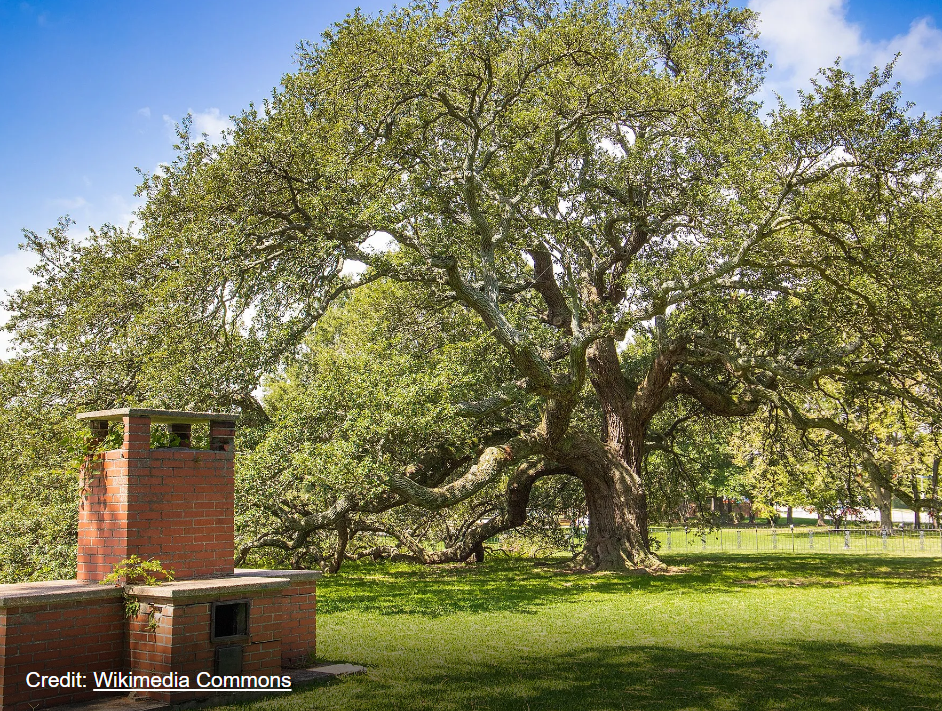on
In the city of Hampton, Virginia, there is an oak tree that has stood for over 200 years.
It is known as Emancipation Oak.
It gained its name because in 1863, that tree was the site where many enslaved people heard the reading of Abraham Lincoln’s Emancipation Proclamation — a reading that restored their humanity and cast off the chains of legalized slavery.
That story is good enough on its own, but it’s not the story that intrigues me most.
Two years earlier, under that same tree, a Black woman named Mary Smith Peake — the first teacher hired by the American Missionary Association — committed the near-treasonous act of educating the daughters and sons of Black people who had found refuge in Fort Monroe.
That tree is not only a national landmark, but it now lives on the campus of Hampton University, a historically Black university established just three years after the end of the bloody Civil War.
The story of the Emancipation Oak underlines the popular conversation we often have about HBCUs and, more specifically, the ones we DON’T have about HBCUs.
I share this story for two reasons.
First, I cannot escape the historical poetry of Black women, like the Emancipation Oak itself, spreading their arms to both shade children from a harmful world and educate the next generations to create a better one.
Second, the story of the Emancipation Oak underlines the popular conversation we often have about HBCUs and, more specifically, the ones we DON’T have about HBCUs.
Since the 1980s, historically Black colleges and universities have been making headlines.
Whether thanks to shows like “A Different World” (which helped foster a 24% attendance increase) or movies like Spike Lee’s “School Daze,” Beyoncé’s use of HBCU bands at Coachella, or Chadwick Boseman’s proud Howard University legacy — the network of 100-plus schools is never far from the headlines, especially when tied to megastar graduates like Oprah Winfrey and Erykah Badu.
These names are like the leaves of the Emancipation Oak — they are bright and beautiful and convert centuries of pain into life-affirming fuel.
The roots of HBCUs lie deep in our country’s blood-soaked soil, tilled by hands that studied our nation’s immoral laws so as to better fight them.
But what of the roots?
The roots of HBCUs lie deep in our country’s blood-soaked soil, tilled by hands that studied our nation’s immoral laws so as to better fight them. People like Mary Smith Peake, Booker T. Washington, and Mary McLeod Bethune are not often in the headlines but are no less foundational to the success of these schools.
I say this because HBCUs are having a moment right now, and I want parents and educators to consider the whole story as a new generation prepares to go off to college.
Since December, when news broke that Deion Sanders was leaving his job coaching football at Jackson State University for the predominantly white University of Colorado, HBCUs and their significance have been grabbing headlines.
As a former HBCU marching band leader, I know the history and importance of Black excellence in sports. If you don’t know, at a Black school, the band and the team are one. We practice on the same field, often use the same locker rooms, and train for every game day.
Raising the profile of Black athletes at Black schools is no small matter, and I understand why some were hurt by Sanders’ decision.
The uproar wasn’t just about football — it was about the respect accorded to institutions that provide respite from racial anxiety in an age of countless hashtag deaths and dangerous misinformation. HBCUs have a deep, rich history of activism and political excellence.
It’s near impossible to walk the halls of an HBCU and not feel the weight of history.
It’s near impossible to walk the halls of an HBCU and not feel the weight of history.
From the horrible necessity that birthed these schools to the faces and names that fought and died for you to be there, attending an HBCU can be a gracious burden — one that continues to inspire new generations to pursue political science, law, engineering, sociology, computer science, and journalism in some of the nation’s top-rated programs.
This is not to say that Black students can’t pursue their dreams at predominately white institutions, but I can personally attest that learning about what Black people have achieved in science and politics and business from a Black teacher, in a room full of Black students, is a unique and powerful thing.
To know you are sitting in the same classroom as Stokely Carmichael, W. E. B. Du Bois, or Alex Haley is a reminder that we have an obligation to bend the moral arc of this country toward justice.
HBCUs have sown the seeds, and with the help of parents, caregivers, and educators, it’s your turn to bloom.

Fedrick C. Ingram is the Secretary-Treasurer of the American Federation of Teachers, serving 1.7 million members, including pre-K through 12th-grade teachers; school and college support staff; higher education faculty; federal, state and local government employees; and nurses and other healthcare professionals. Ingram is the immediate past president of the 140,000-member Florida Education Association. He also has served as an elected vice president of the AFT’s executive council.
Join our email list to stay connected.








